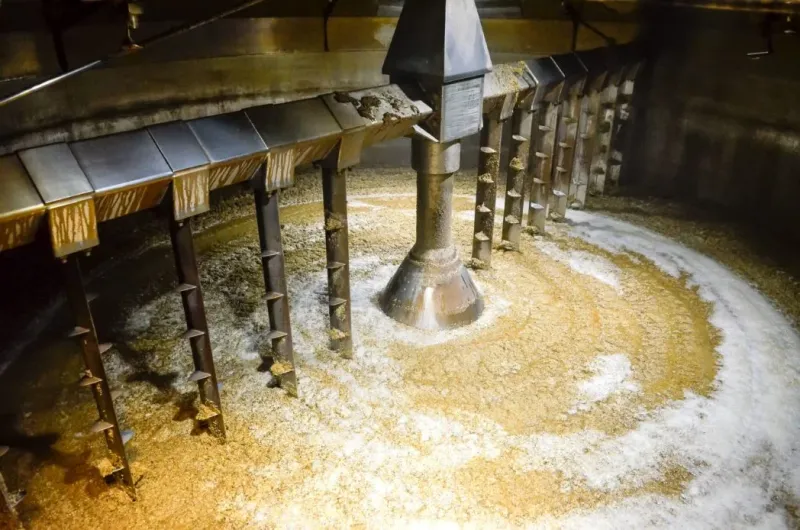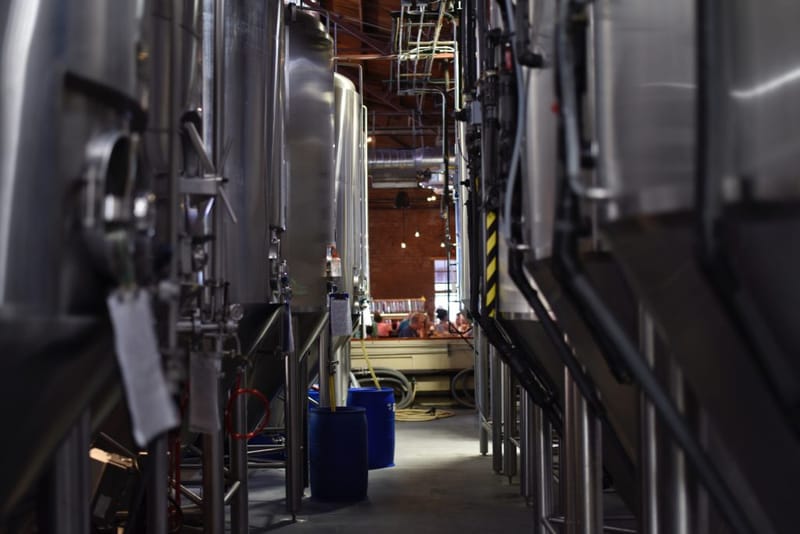Sustainable Brewing Practices for Alcohol Production: A Focus on Wastewater Treatment
Introduction to Sustainable Brewing
The craft of brewing alcohol, whether beer, wine, or spirits, has evolved significantly over the years. While the focus traditionally centered on taste and quality, modern breweries are now addressing environmental sustainability, particularly concerning water usage and wastewater treatment. Given that brewing is a water-intensive process, with substantial volumes of water used and discharged, the industry faces growing pressure to minimize its environmental impact. In this blog, we’ll explore the sustainable brewing practices that are gaining momentum, particularly the innovative approaches to wastewater treatment in alcohol production.

The Challenge of Water Usage in Brewing
Water is the primary ingredient in beer and other alcoholic beverages, but it’s also essential for nearly every step of the production process. From washing raw ingredients to cleaning fermentation tanks and cooling systems, water is a critical component. However, the average brewery uses around 5 to 10 liters of water for every liter of beer produced, and a significant portion of this water ends up as wastewater. This wastewater often contains organic matter, chemicals, yeast, hops, and cleaning agents, all of which can harm the environment if not properly treated before being discharged.
Managing water consumption and wastewater treatment is crucial for ensuring that the brewing industry operates sustainably. Brewers are now increasingly adopting advanced technologies and eco-friendly practices to reduce water use, minimize wastewater generation, and treat it effectively to prevent environmental degradation.
Water Efficiency: Reducing Water Consumption at the Source
One of the most effective ways to reduce wastewater in brewing is to use less water in the first place. Breweries are implementing various strategies to improve water efficiency, starting with water audits to identify areas of excessive usage. By carefully tracking water use throughout production, breweries can pinpoint where savings can be made, whether through equipment upgrades, process re-engineering, or behavioral changes.
Brewers are also adopting water-efficient technologies, such as low-flow spray nozzles for cleaning equipment, water-saving steam systems for sterilization, and dry conveyor systems that reduce the need for water in bottling and packaging. Additionally, optimizing cooling systems and reusing water in non-potable applications, such as equipment washing or irrigation, can significantly cut down water consumption.
In some breweries, reclaimed water is being used for specific non-beverage processes like boiler feed or bottle washing, further contributing to water conservation. Reducing the volume of water used not only lowers operational costs but also decreases the amount of wastewater requiring treatment, making water efficiency a win-win for breweries and the environment.

Innovative Wastewater Treatment Solutions for Breweries
Brewing wastewater is characterized by high levels of organic matter, such as sugars, yeast, and grains, which can significantly increase Biological Oxygen Demand (BOD) and Chemical Oxygen Demand (COD) in water bodies if released untreated. Breweries are turning to various sustainable wastewater treatment technologies to address this issue and minimize the environmental impact.
Anaerobic Digesters
One of the most promising solutions for brewery wastewater treatment is anaerobic digestion, which uses microorganisms to break down organic matter in the absence of oxygen. This process not only treats the wastewater but also produces biogas, a renewable energy source that can be used to power brewery operations. Many breweries are now incorporating anaerobic digesters into their wastewater treatment systems to reduce both energy costs and wastewater pollution.
The biogas generated from anaerobic digestion can be harnessed to fuel boilers, heat fermentation tanks, or even generate electricity, thereby reducing reliance on external energy sources. This closed-loop system is an excellent example of how sustainable practices can create a symbiotic relationship between energy and wastewater management in the brewing industry.
Membrane Bioreactors (MBRs)
Membrane bioreactor technology is another advanced wastewater treatment method gaining traction in breweries. MBRs combine biological treatment with membrane filtration to remove organic pollutants, suspended solids, and pathogens from wastewater. The result is highly purified water that can be safely discharged into the environment or reused within the brewery for processes like cleaning or cooling.
By using MBR systems, breweries can drastically reduce the volume of wastewater that requires treatment, as well as the pollutants in their effluent. Additionally, the treated water can be reused, helping to conserve valuable water resources and further enhancing the brewery's sustainability efforts.
Constructed Wetlands and Natural Filtration Systems
Some breweries are adopting natural wastewater treatment solutions, such as constructed wetlands, to filter and purify their wastewater. Constructed wetlands are engineered systems that mimic natural wetlands by using soil, plants, and microorganisms to treat wastewater. As the water flows through the wetland, pollutants are naturally broken down, absorbed, or filtered out.
This eco-friendly treatment method not only reduces the environmental impact of brewery wastewater but also creates habitats for wildlife, enhancing biodiversity around the brewery. Constructed wetlands are particularly well-suited for breweries located in rural or semi-rural areas where space is available for these natural systems to thrive.
Closed-Loop Water Systems
To achieve zero wastewater discharge, some breweries are experimenting with closed-loop water systems, where wastewater is treated and reused within the facility, ensuring that no water leaves the brewery as effluent. This approach requires advanced filtration and purification technologies, such as reverse osmosis (RO) and ultrafiltration (UF), breweries to remove contaminants and ensure the water is clean enough for reuse in brewing processes.
Although implementing closed-loop systems can be costly, the environmental and financial benefits are significant. By recycling wastewater and minimizing freshwater use, breweries can reduce their ecological footprint while securing a stable water supply for future operations.

Sustainability Beyond Water: A Holistic Approach to Brewing
While water conservation and wastewater treatment are critical components of sustainable brewing, many breweries are taking a holistic approach to sustainability by addressing other environmental impacts, such as energy consumption, packaging waste, and carbon emissions.
Energy Efficiency and Renewable Energy
Breweries are known for their energy-intensive operations, especially in processes like boiling, cooling, and refrigeration. To reduce their energy footprint, many brewers are investing in energy-efficient equipment, such as high-efficiency boilers, heat recovery systems, and LED lighting. Additionally, solar panels, wind turbines, and other renewable energy sources are becoming more common in breweries looking to offset their energy use with clean power.
By integrating renewable energy into their production facilities, breweries can significantly reduce their greenhouse gas emissions and contribute to the global transition toward sustainable energy.
Eco-Friendly Packaging
Packaging is another area where breweries are making strides in sustainability. From reducing the weight of bottles and cans to using recycled or biodegradable materials, the brewing industry is focusing on minimizing packaging waste. Some breweries are even offering returnable bottle schemes or experimenting with plastic-free packaging to reduce their environmental impact.
Conclusion: Brewing a Sustainable Future
As the demand for sustainably produced products continues to grow, breweries are stepping up their efforts to reduce their environmental impact. From water conservation and wastewater treatment to energy efficiency and eco-friendly packaging, the brewing industry is embracing a wide range of sustainable practices that benefit both the environment and the bottom line.
By adopting innovative wastewater treatment solutions like anaerobic digesters, membrane bioreactors, and constructed wetlands, breweries can treat their wastewater effectively while generating renewable energy and conserving water. As a result, these sustainable practices are helping to ensure that brewing remains an environmentally responsible industry that meets the demands of modern consumers.
In the end, sustainable brewing practices are not only good for the planet but also for business. By committing to sustainability, breweries can reduce costs, enhance their brand reputation, and contribute to a greener, more sustainable future for the entire industry.